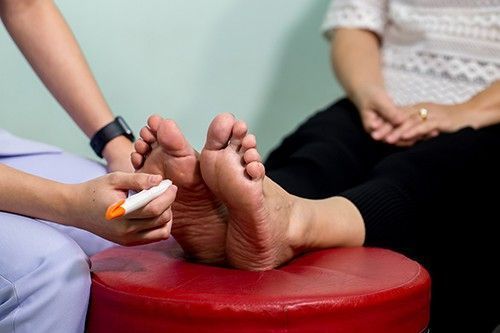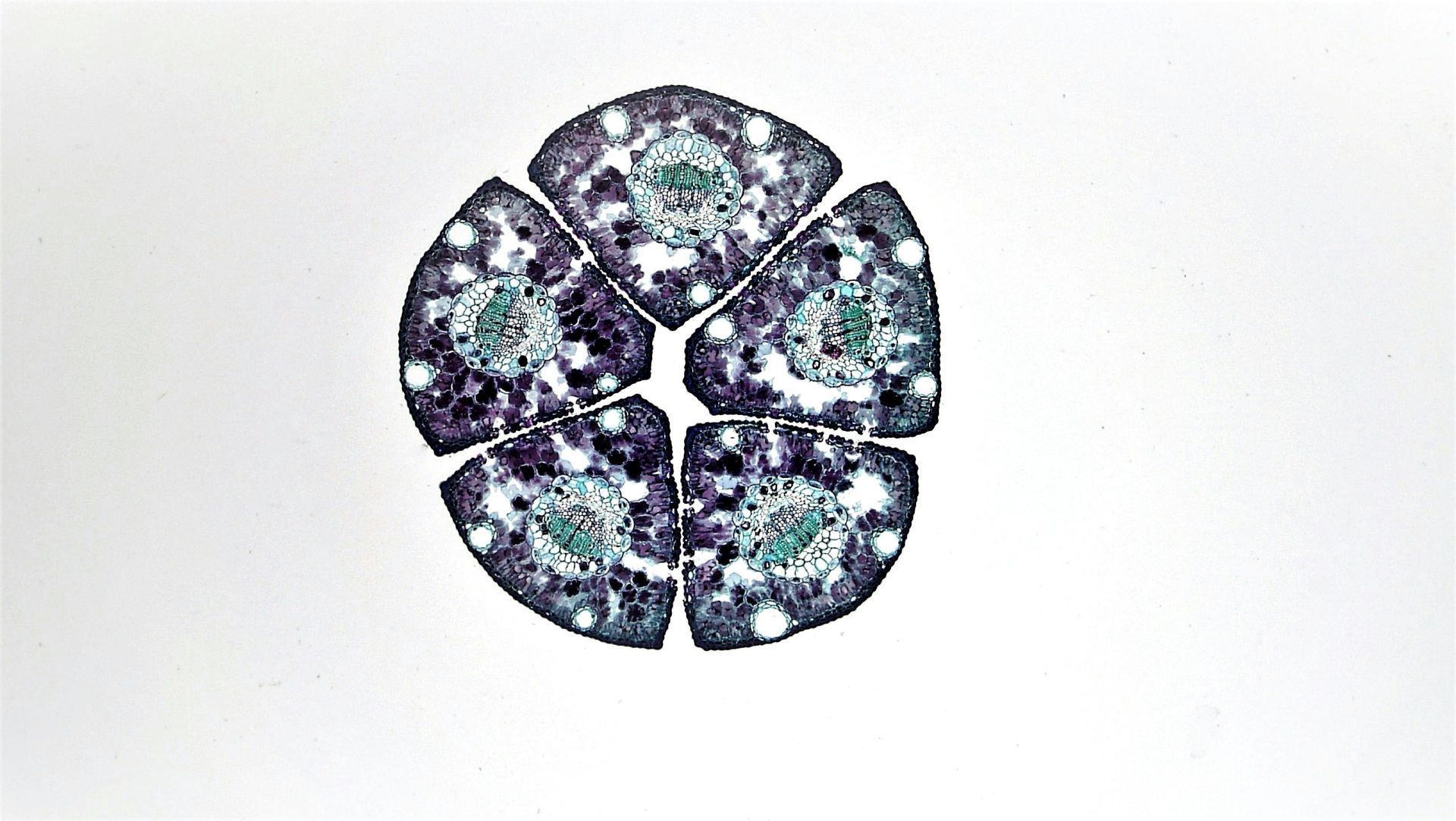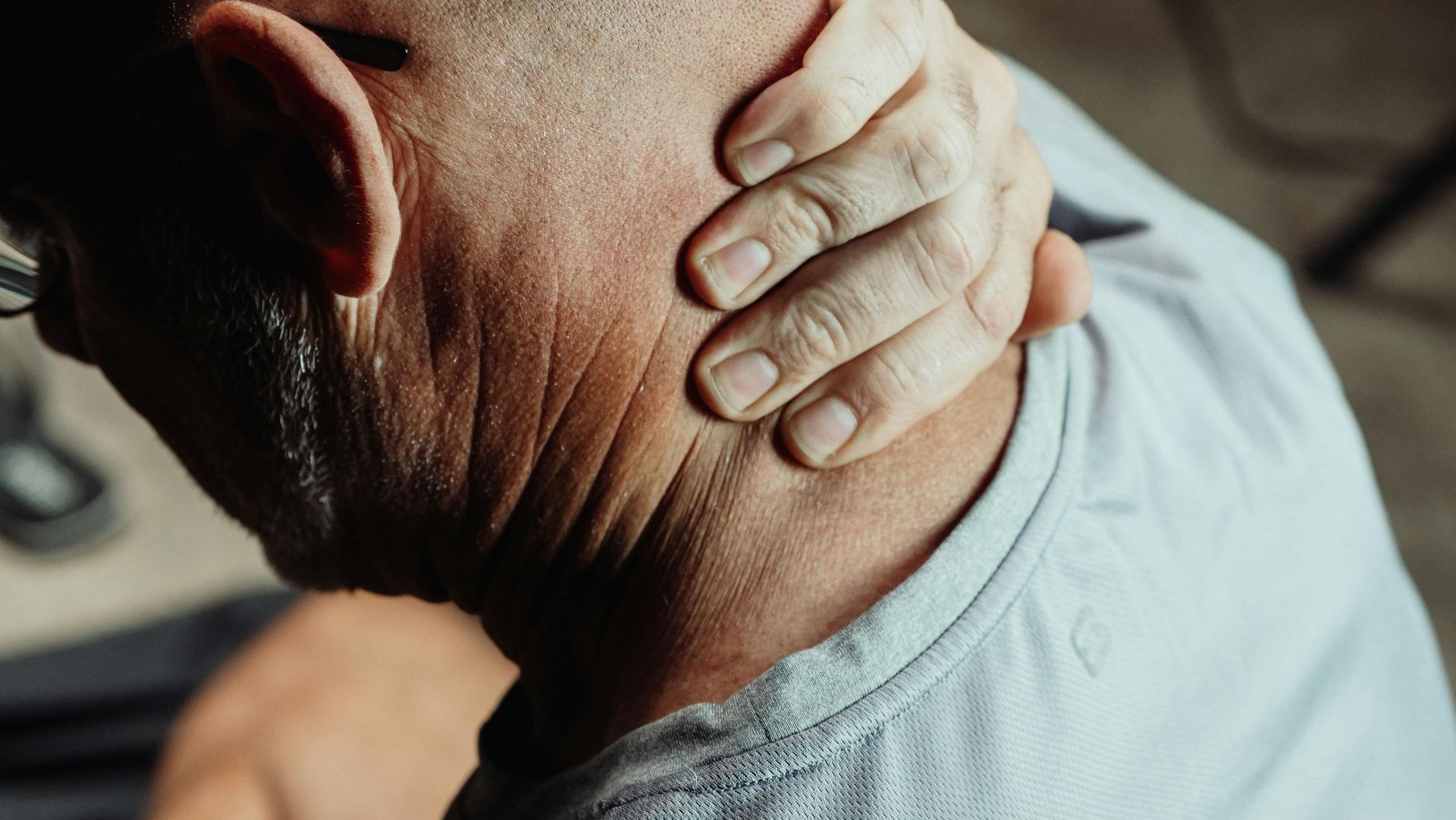Se Habla Español

Preventing Neuropathy Complications: Tips for Daily Foot Care and Monitoring
Neuropathy, a condition characterized by nerve damage, particularly in the peripheral nerves, can lead to various complications, especially in the feet.
Diabetic neuropathy is a common form of neuropathy associated with diabetes, but neuropathy can also result from other causes. Proper foot care and monitoring are essential for preventing complications such as infections, ulcers, and amputations that can arise due to neuropathy.
Here are tips for daily foot care and monitoring to help individuals with neuropathy maintain optimal foot health.
Daily Foot Inspection
A daily foot inspection is a fundamental aspect of neuropathy care. Examining the feet for any signs of redness, swelling, cuts, blisters, or changes in skin color is crucial. Individuals with neuropathy may have reduced sensation in their feet, making it essential to visually inspect for any abnormalities regularly. If visual inspection is challenging, enlisting the help of a caregiver or using a mirror can be beneficial.
Proper Hygiene
Maintaining proper foot hygiene is essential in preventing infections. Wash the feet daily with mild soap and lukewarm water. Ensure thorough drying, paying attention to spaces between the toes. Moisturizing the feet with a hypoallergenic lotion helps prevent dry skin, but it’s crucial to avoid applying lotion between the toes, as excessive moisture in that area can contribute to fungal infections.
Trim Nails Carefully
Trimming toenails requires careful attention, especially for individuals with neuropathy. Use proper nail clippers and trim the nails straight across, avoiding rounded corners to reduce the risk of ingrown toenails. If trimming nails becomes challenging, seeking professional assistance from a podiatrist can ensure proper nail care without the risk of injuries.
Wear Proper Footwear
Choosing the right footwear is critical for individuals with neuropathy. Opt for shoes that provide proper support, cushioning, and protection. Shoes should have a wide toe box to prevent crowding of toes and reduce the risk of pressure points. Avoid high heels, tight shoes, and shoes with pointed toes. Inspecting shoes for any foreign objects before wearing them is also essential.
Monitor Temperature
Neuropathy can affect the body’s ability to regulate temperature, making individuals prone to burns or frostbite without realizing it. Check the temperature of bathwater with a thermometer, and use caution with heating pads and hot surfaces. Additionally, during cold weather, wearing warm socks and protecting the feet from extreme temperatures is crucial to prevent cold-related injuries.
Regular Exercise
Engaging in regular exercise helps improve blood circulation, which is beneficial for individuals with neuropathy. Activities such as walking, swimming, or stationary biking can be suitable options. Before starting any exercise regimen, it’s advisable to consult with a healthcare professional to ensure it aligns with individual health needs and limitations.
Maintain Healthy Blood Sugar Levels
For those with diabetic neuropathy, maintaining healthy blood sugar levels is essential in preventing further nerve damage. Consistent monitoring of blood glucose levels, following a balanced diet, and adhering to prescribed medications or insulin regimens contribute to overall health and can help prevent complications associated with neuropathy.
Manage Foot Pain
Pain management is a crucial aspect of neuropathy care. Individuals experiencing pain or discomfort in their feet should consult with their healthcare provider for appropriate interventions. Pain medications, topical treatments, or other modalities may be recommended to alleviate symptoms and improve overall foot comfort.
Regular Check-ups with a Podiatrist
Regular check-ups with a podiatrist are essential for individuals with neuropathy. Podiatrists specialize in foot care and can identify potential issues early on. They can also provide guidance on appropriate footwear, nail care, and preventive measures to maintain foot health. Regular foot check-ups become an integral part of overall neuropathy management.
Stay Informed and Educated
Being informed about neuropathy and its potential complications is empowering. Individuals with neuropathy should educate themselves about the condition, stay updated on recommended foot care practices, and be proactive in seeking medical attention if any concerns arise. Knowledge and awareness are powerful tools in preventing complications and maintaining foot health.
Preventing neuropathy complications requires a proactive and comprehensive approach to daily foot care and monitoring. Regular inspections, proper hygiene, careful nail trimming, suitable footwear, temperature awareness, exercise, blood sugar management, pain control, podiatric check-ups, and staying informed are all essential components of an effective neuropathy care routine.
By incorporating these practices into daily life, individuals with neuropathy can significantly reduce the risk of foot complications and enhance their overall well-being.
If you or a loved one have neuropathy in Houston or any nearby city in Texas, call Campbell Health Center today at (832) 243-7713 to schedule a consultation.
May we invite you to join us for a
Complimentary Consultation?

"Here at Campbell Health Center, we are dedicated to helping you get out of pain and get back to feeling great again.
Call us and tell us about your health issues and set up a consultation to discuss the treatment that will best get you back to optimum health.
We promise to sit down with you, face to face, and be attentive, present, focused and actually listen."
Campbell Health Center
Call us now at
(832) 243-7713
Advanced Pain
Management Articles
How Can We Help You?
This fast-growing treatment uses cellular tissue, growth factors, and PRP to heal and restore your body to a healthy level.
Campbell Health Center can help treat peripheral neuropathy, and help relieve the pain and discomfort associated with it.
We treat our patients with the most effective healing options available to ensure you can return to a pain-free life.
Stem Cell Therapy is an advanced regenerative medicine to provide safe and effective relief for a variety of health conditions.
Chiropractic care focused on restoring movement and correct positioning to the joints of the body.
Pain relief treatments are designed to help your body heal itself very effectively instead of masking the pain.
How Do Our Patients Feel About Us?
"Excellent Clinic! The staff were very helpful and polite from my initial phone call to every appointment day. All the doctors are friendly and knowledgeable. They took the time to explain my condition and my treatment options. Glad to find this clinic who can finally end my back pain!"
Susan B.
"Dr. An is great and so is her staff. I saw her about 24 hours after an ankle injury - she recommended PRP injections. Now it's 3 days after the PRP treatment and I'm back to teaching and practicing yoga. I highly recommend Campbell Health Center."
Hope W.














